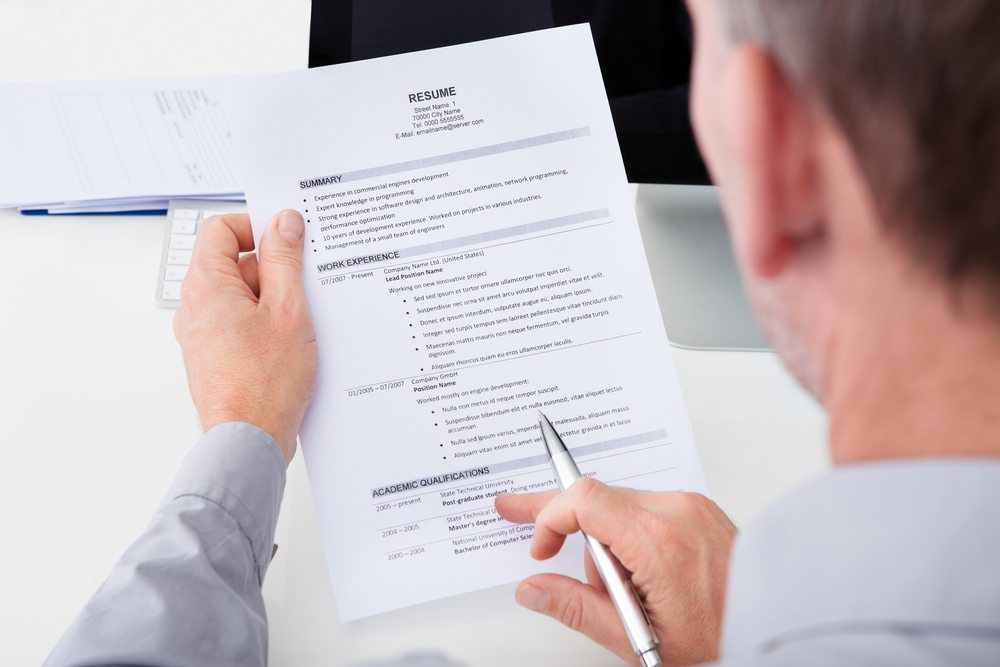Verifying the information provided by your job candidate can be done by doing a background check. Additionally, it can show details that were either accidentally or purposefully left out, like residency in other areas where a criminal record might be found. These reports encourage a productive and secure work environment, and they serve as an effective risk management tool that has been shown to lower the likelihood of a poor hire.
Driving Records
An employment background check is done to review a person’s criminal, employment, and/or financial history. Many employers verify the backgrounds of potential employees. For instance, driving records are included in background checks for employment for various reasons. For example, an employer may require a certain license endorsement for commercial driving or prohibit the employee from driving at night or in particular types of vehicles. It is also important to check whether a person has any violations or accidents on their driving record. These violations include speeding, driving under the influence (DUI), and reckless driving.
Driving records are included in a background check because they can reveal a person’s history of moving violations. This information may be useful if the person is applying for a driving position, especially one that requires driving.
Credit History
Credit history is one of the many pieces of information employers look at during a background check for employment. The purpose of a credit check is to ensure that an applicant is creditworthy, which is why it is so important to ensure that your history is accurate. Employers can also see if you are on time with your payments and if you are making reasonable debt payments. This will demonstrate to prospective employers that you are responsible and trustworthy. The FCRA requires employers to provide a copy of a candidate’s credit report, explain their rights under the FCRA, and allow them to dispute negative information. Some states also place limitations on the use of credit history for employment. These restrictions apply to law enforcement, government agencies, corporate executives, and individuals with fiduciary responsibilities. However, employment background checks based on credit history are generally still a legal option for many companies.
Criminal Record
Criminal background checks can help employers determine if an applicant has a criminal past. They include a search of a state or nationwide criminal record repository. Some employers choose to search multiple states or every county in which an applicant has lived. Although criminal records are included in background checks for employment, employers should not use them as a blanket disqualifier. The best practice is to evaluate each applicant based on specific traits rather than stereotypes. In addition, employers should follow the guidance provided by the Equal Employment Opportunity Commission (EEOC) when making job-relatedness determinations.
Employment History
You may encounter questions about your employment history when running a background check. This includes a person’s previous employers, dates, and skills. If you are embarrassed about a past job, contact a recruiter, who can explain to a potential employer why this may affect your chances of employment. Most potential employers are not discouraged by past terminations, but it is important, to be honest.
One of the most common reasons employers want to conduct background checks is to determine if a prospective employee has a criminal history. This information can reveal a person’s past mistakes and character issues. For example, a criminal record can reveal whether an applicant has been arrested or prosecuted or whether they are on the terrorist watchlist. However, employers can only check certain records about a job applicant if they have their consent.
Social Media Activity
Background checks that include social media activity can help determine if a candidate is fit for the job. This screening can determine whether the candidate has posted anything about themselves or their professional interests. It can also show if a person has posted any content that might be considered inappropriate. While traditional background checks do not include social media activity, it is possible to get a comprehensive check of a prospective employee for around $20. Social media background checks can also help you verify an applicant’s eligibility for employment in the U.S. They can also tell you if a candidate has any online connections and professional endorsements.







